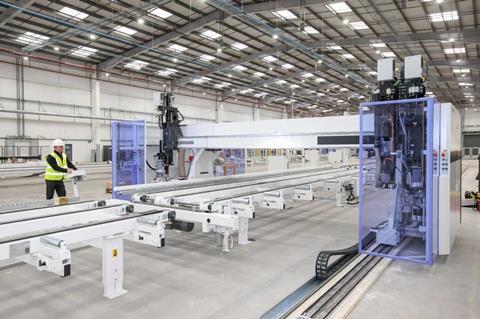Chief executive says outgoing chair “100% behind” decision to sell housebuilding business
Countryside has insisted that its decision to break up the company was not made “overnight” and that its chair, David Howell, is completely behind the plan.
The shock announcement – which saw it appoint Rothschild to advise on the sale of what was once its core private housebuilding business – came just a day after activist investor Browning West publicly called for it to separate the business, and called for Howell stand down.

Alongside the appointment of Rothschild, Howell (pictured) yesterday said he will leave the business in 2021.
However, Countryside CEO Ian McPherson told Housing Today that Howell was not leaving because he disagreed with the move, but was “100% behind the strategy set out”.
McPherson said Howell had informed the board of his “personal” decision to leave the busines in the previous 24 hours and said he had not been asked to leave by the board. However, McPherson declined to say why Howell had decided to stand down.
He also said the decision to separate the housebuilding business, in order to allow Countryside to focus on its partnerships business building homes for local authorities and housing associations, had been something the firm had been considering for some time.
Browning West, which owns around 10% of Countryside, described Howell as “weak” on Wednesday and called for the separation of the partnerships and housebuilding businesses.
Countryside reported a £2m loss for the year to 30 September, on adjusted revenue of just under £1bn. This compared with a £200m profit in 2019.
McPherson said: “This is David’s decision which he announced to the board in the last 24 hours […] It’s not related to the timing of any other announcements by the shareholders.
“David is absolutely 100% behind the strategy to appoint Rothschild to look at options available to the board around any future separation of housebuilding from the group.”
McPherson said the rationale for Countryside’s current dual structure was something he had been asked to consider as soon as he took over as chief executive, at the start of the year. He said: “This kind of decision, you don’t make it overnight, it takes a lot of consideration and a lot of planning
“Much of the year has been impacted by covid, and it hasn’t been appropriate to think about this.
“Now we’ve come through the crisis, and are back in a recovery position, we felt the full-year results was the right time to update the market on our future strategy and future direction.”
Alongside the announcement and results, Countryside set out new targets for the business over the next three years. McPherson said the firm had built a structure capable of building 10,000 partnerships homes a year, and that the firm was setting a target to build 8,000 a year by 2023.
This compares with just 3,213 homes built in the covid-affected year to 30 September. Countryside also announced yesterday it had signed a deal with housing association Places for People to build 10,000 homes through its partnerships division over the next 10 years.
McPherson said part of the rationale for selling the housebuilding business was that, given the similar levels of profit but at lower provided by partnerships, Countryside would increasingly choose to invest any cash in expanding that, rather than in housebuilding.
McPherson did not put an exact timetable on the sale of the business, but said it would take a number of months to make legal changes to the group structure in order to make a sale possible.
He said the board had decided a sale was in the best interests of the company, and Rothschild had been appointed to look at how best to achieve it, though he said Countryside had not so far had any approaches for the business.

McPherson also told Housing Today that the firm now expected to open its second offsite manufacturing facility in spring 2021, in order to drive growth in the partnerships business by vertical integration of its supply chain.
The closed panel timber frame facility in Leicestershire will ultimately have capacity to build 3,500 homes a year, bringing Countryside’s total capacity to 5,000 homes by 2022.











No comments yet